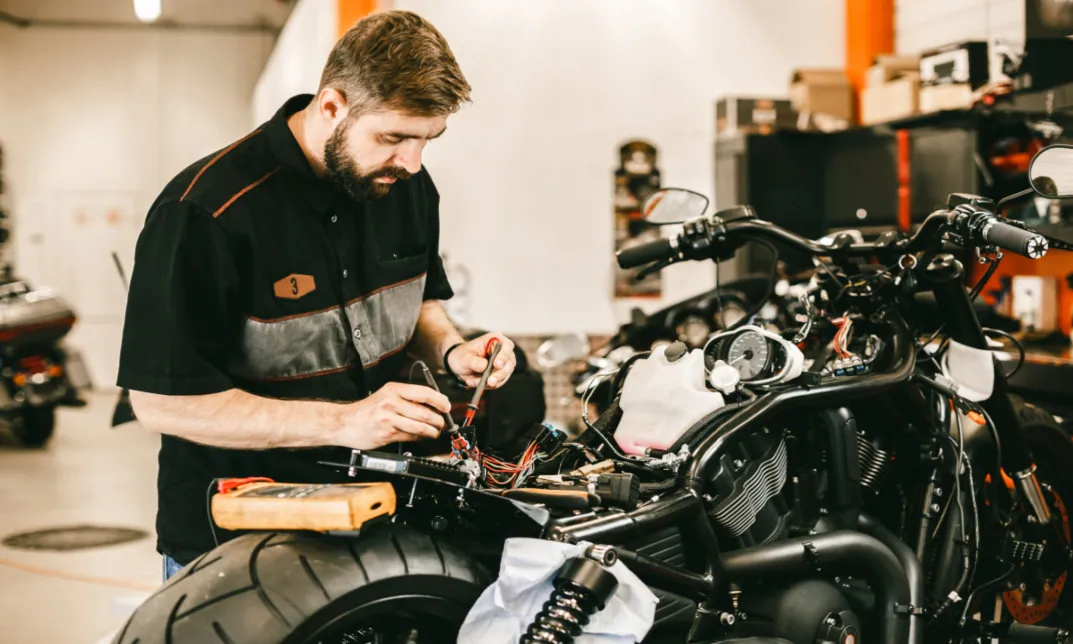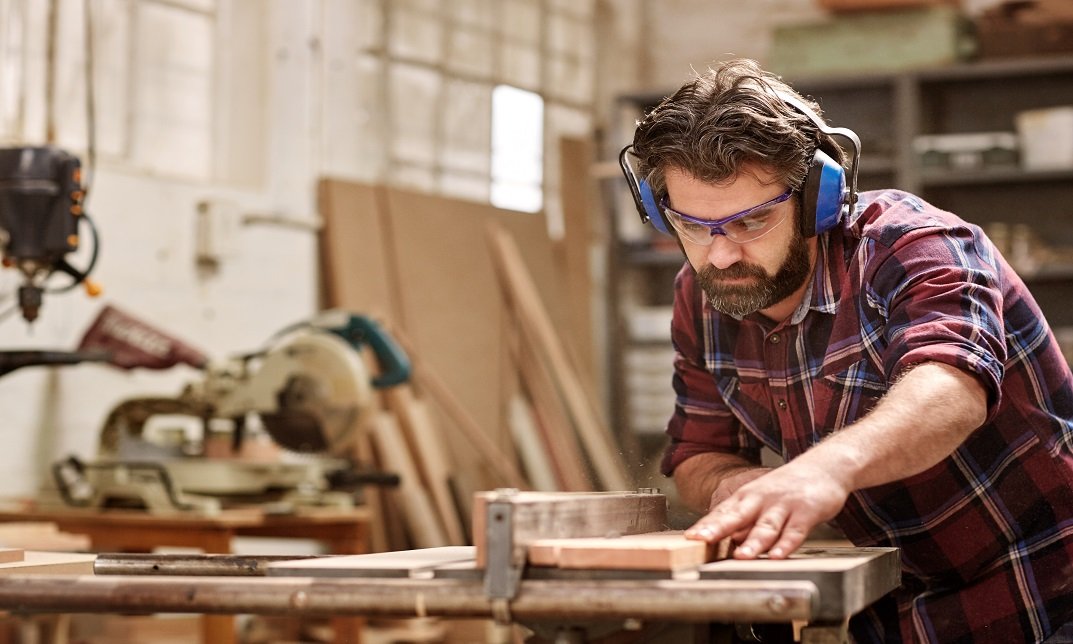No products in the cart.
Becoming a motorcycle mechanic requires skills, education, and experience. In this blog, you will explore the steps to begin this exciting career. You will learn about gaining the right skills, education, certifications, and virtual experience. Whether you love fixing bikes or want to turn your hobby into a job, this will help you get started as a motorcycle mechanic.
So, if you’re ready to roll up your sleeves and dive into the world of motorcycles, let’s explore how you can become a motorcycle mechanic!

What Is a Motorcycle Mechanic?
A motorcycle mechanic is a skilled individual who maintains, repairs, and services motorcycles. They understand the inner workings of bikes, including engines, transmissions, brakes, and electrical systems.
Their expertise goes beyond technical knowledge. They’re problem solvers, using experience and diagnostic tools to identify and fix issues efficiently. Once they identify the problem, they make the necessary repairs or replacements to ensure the motorcycle functions well.
Alongside their mechanical skills, motorcycle mechanics excel in customer service. They communicate with motorcycle owners. They discuss repair options, give estimates, and address concerns professionally. Being a motorcycle mechanic isn’t just about fixing bikes; it’s about enabling riders to ride safely.
What Does a Motorcycle Mechanic Do?
Motorcycle mechanics are vital in ensuring motorcycles’ smooth operation and safety. Their responsibilities include various tasks, from diagnosing mechanical issues to performing repairs and maintenance. Here are some other duties that a motorcycle mechanic does:
Diagnosing Mechanical Issues
One of the primary responsibilities of a motorcycle mechanic is to diagnose mechanical problems. This means using special tools, performing tests, and looking closely to find problems. Whether it’s engine, brakes, or electrical system issues, spotting problems is essential for a motorcycle mechanic.
Performing Repairs and Maintenance
After identifying the problem, the motorcycle mechanic begins repairing and maintaining duties. Replacing worn-out parts, adjusting engine parts, and fixing electrical issues. The mechanic also conducts routine maintenance checks. The main aim is to ensure the motorcycle functions well and meets safety requirements when on the road.
Providing Customer Service
Apart from fixing bikes, motorcycle mechanics talk to customers. They discuss repairs, give price estimates, and answer questions. Good customer service skills are vital for making customers happy and keeping them coming back. Being able to explain tricky problems in simple terms is also important for motorcycle mechanics.
Keeping Up with Industry Trends
The field of motorcycle repair is constantly changing. New technologies and better ways of doing things are constantly emerging. To stay competitive, motorcycle mechanics need to stay updated. They might have to attend classes, workshops, or talks to improve their skills.
Ensuring Safety
Safety is essential in motorbike repair. Mechanics must follow proper safety protocols to prevent workplace accidents and injuries. This includes wearing personal protective equipment (PPE), using equipment correctly, and sticking to safety guidelines when working with motorcycles.
Skills Required to Become a Motorcycle Mechanic
Becoming a motorcycle mechanic requires specific skills, technical expertise, and personal attributes. Here are some essential skills you need in this field:
- Technical Knowledge
- Problem-Solving Skills
- Attention to Detail
- Communication Abilities
- Manual Agility
- Adaptability
- Customer Service Skills
- Time Management
- Safety Awareness
- Passion for Motorcycles
Experience and Educational Requirements
Becoming a motorcycle mechanic requires a minimum level of education and certification in this field. Moreover, there are some other things needed, such as:
- High School Education: A high school diploma or equivalent is usually required. Moreover, subjects like mathematics, science, and automotive technology are beneficial.
- Vocational Training: Enrolment in vocational training programmes or technical colleges is common. These courses cover engine diagnostics, electrical systems, brakes, and suspension.
- Apprenticeships: Apprenticeships offer practical experience under supervision. It combines classroom instruction with on-the-job training.
- Certifications: In some areas, you might need a licence or certification to be a motorcycle mechanic. This could mean passing a test set by your local government. Therefore, check with your state’s licensing authority for the latest information.
- On-the-Job Experience: Working in repair shops or dealerships provides real-world experience. It is also an opportunity to develop essential skills and network with industry professionals.
- Continuing Education: Continuous learning through workshops, seminars, and online courses is essential. As a result, it keeps mechanics updated on industry trends and advancements.
Online Courses
Online courses are a convenient and flexible way to build your motorcycle mechanic skills. Moreover, having certification in these courses can greatly help with your resume.
In fact, Wise Campus offers many easy-to-learn and effective motorcycle mechanic courses! You can enrol with us and start your career easily.
Some topics you might learn in these courses include:
- Engine Diagnostics
- Electrical Systems
- Brake Systems
- Suspension Systems
- Fuel Systems
- Ignition Systems
- Transmission Systems
- Cooling Systems
- Lubrication Systems
- Wheel and Tire Maintenance
- Frame and Chassis Repair
- Exhaust Systems
- Motorcycle Safety Practices
- Troubleshooting Techniques
Motorcycle Mechanic Jobs and Salary
The demand for motorcycle mechanics is very high in the UK. As a result, the salary of this profession is also very lucrative in terms of other professions. Here are some examples of motorbike mechanic jobs and salaries in the UK:
- Motorcycle Technician – £18,000 to £30,000
- Motorcycle Service Advisor – £18,000 to £25,000
- Motorcycle Parts Advisor – £18,000 to £25,000
- Motorcycle Workshop Controller – £22,000 to £30,000
- Motorcycle Sales Executive – £20,000 to £30,000
- Motorcycle Instructor – £18,000 to £30,000
- Motorcycle Test Rider – £20,000 to £35,000
- Motorcycle Custom Builder – £20,000 to £40,000







